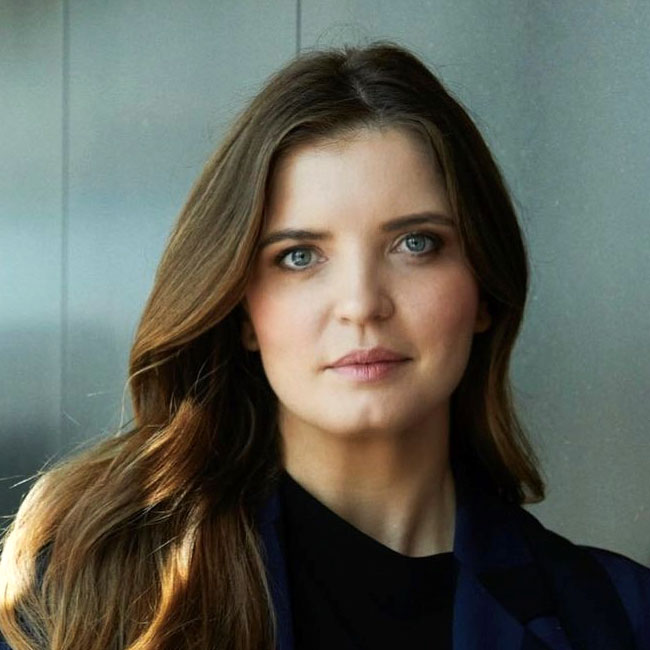„Even though results are significantly better than in the previous year, we are still nowhere near the level we were and need to be at. We are working intensively to implement new business areas in line with our Strategy 2027 and to better exploit the potential of our current core business. At the same time, the aim is to sustainably increase efficiency “, says Georg Kapsch, CEO of Kapsch TrafficCom. Unless otherwise stated, all values in EUR million Q1-Q3 2020/21 Q1-Q3 2021/22 +/- Revenues 384.5 379.2 -1.4% EBIT -89.0 5.8 n.a. EBIT margin -23.1% 1.5% +24.7 PP Result for the period attributable to equity holders -78.3 -2.5 +96.9 % Earnings per share (EUR) -6.03 -0.19 € +5.84 Vienna, February 23, 2022 – After three quarters in a persistently difficult market environment, Kapsch TrafficCom succeeded in achieving a positive operating result (EBIT) of EUR 6 million (previous year: EUR -89 million). Revenues of EUR 379 million were 1 % below the previous year's level. Earnings attributable to shareholders amounted to EUR -2 million (previous year: EUR -78 million), corresponding to earnings per share of EUR -0.19 (previous year: EUR -6.03). The lower sales for the period were mainly due to the 20% decline in the implementation business. The operations business, on the other hand, increased by 12%, mainly due to projects in South Africa and Bulgaria. The components business continued to suffer from supply chain bottlenecks and declined by 2%. Kapsch TrafficCom achieved a significant reduction of its cost base through restructuring and cost saving measures. This related in particular to material, personnel and other operating expenses. Special effects burdened EBIT in the amount of EUR -16 million (previous year: EUR -90 million). The financial result amounted to EUR -4 million (previous year: EUR -10 million). Tax expenses amounted to EUR 1 million (previous year: tax income of EUR 19 million). The result for the period attributable to shareholders amounted to EUR -2 million (previous year: EUR -78 million), which corresponds to earnings per share of EUR -0.19 (previous year: EUR -6.03). Free cash flow amounted to EUR 9 million in the first three quarters of 2021/22 (previous year: EUR 1 million). Therefore, net debt decreased to EUR -163 million since the last reporting date (March 31, 2021: EUR -170 million). The gearing increased slightly from 200% to 202%. The partial repayments of the promissory note bond and a bank loan from equity had a balance sheet-reducing effect in the first quarter. Total assets amounted to EUR 530 million as of December 31, 2021 (March 31, 2021: EUR 593 million). The equity ratio increased from 14% to 15% in the first three quarters of 2021/22. Segment results for the first three quarters of 2021/22. 72% of revenues were generated by the tolling segment and 28% by the traffic management segment. 56% of revenues were generated in the Europe-Middle East-Africa (EMEA) region, 40% in the Americas region (North, Central and South America) and 4% the Asia-Pacific (APAC) region. Tolling segment. Sales decreased by 2% to EUR 273 million. Declines in the implementation business of 23% and in the components business of 2% were not offset by 10% higher revenues in the operations business. The EMEA region made the largest contribution to revenues with EUR 148 million. In total, this region recorded growth of 2%. In the Americas region, revenues declined by 6% to EUR 112 million. In the APAC region, revenues decreased by EUR 2 million to EUR 14 million. Results Tolling Unless otherwise stated, all values in EUR million Q1-Q3 2020/21 Q1-Q3 2021/22 +/- Revenues 279.6 273.1 -2.3 % EBIT -79.7 -0.6 +99.2 % EBIT margin -28.5 % -0.2 % +28.3 PP EBIT was slightly negative at EUR -1 million (previous year: EUR -80 million). Segment Traffic Management. Revenues increased by 1% to EUR 106 million. This was due in particular to the operations business, which grew by 15%. The largest contribution to revenues was made by the EMEA region with EUR 64 million. In total, this region recorded an increase of 9%. In the Americas region, revenues declined by 10% to EUR 39 million, and in the APAC region, they remained constant at EUR 3 million. Results Traffic Management Unless otherwise stated, all values in EUR million Q1-Q3 2020/21 Q1-Q3 2021/22 +/- Umsatz 104.9 106.0 +1.1 % EBIT -9.3 6.5 n.a. EBIT-Marge -8.9 % 6.1 % +15.0 PP EBIT was positive at EUR 7 million (previous year: EUR -9 million). The EBIT margin was 6% (previous year: ‑9%). Outlook. For the financial year 2021/22, management expects a year-on-year increase in revenues. However, the previously targeted +10% currently appears out of reach. As long as the market environment remains so challenging due to COVID and new business momentum does not increase, double-digit growth rates will be a challenge. Of course, the lower revenue expectation also affects profitability. However, Kapsch TrafficCom cannot further reduce the Group's cost base in the short term without the risk of not being able to take advantage of upcoming growth impulses due to a lack of resources. Thus, until revenues pick up again, the company is in a phase of low profitability. EBIT in financial year 2021/22 (including special items) is expected to be below the previously forecast 3% (but positive). The report on the first three quarters of 2021/22 are scheduled to be available today, from 7:35 a.m. (CET), at: www.kapsch.net/ktc/IR
